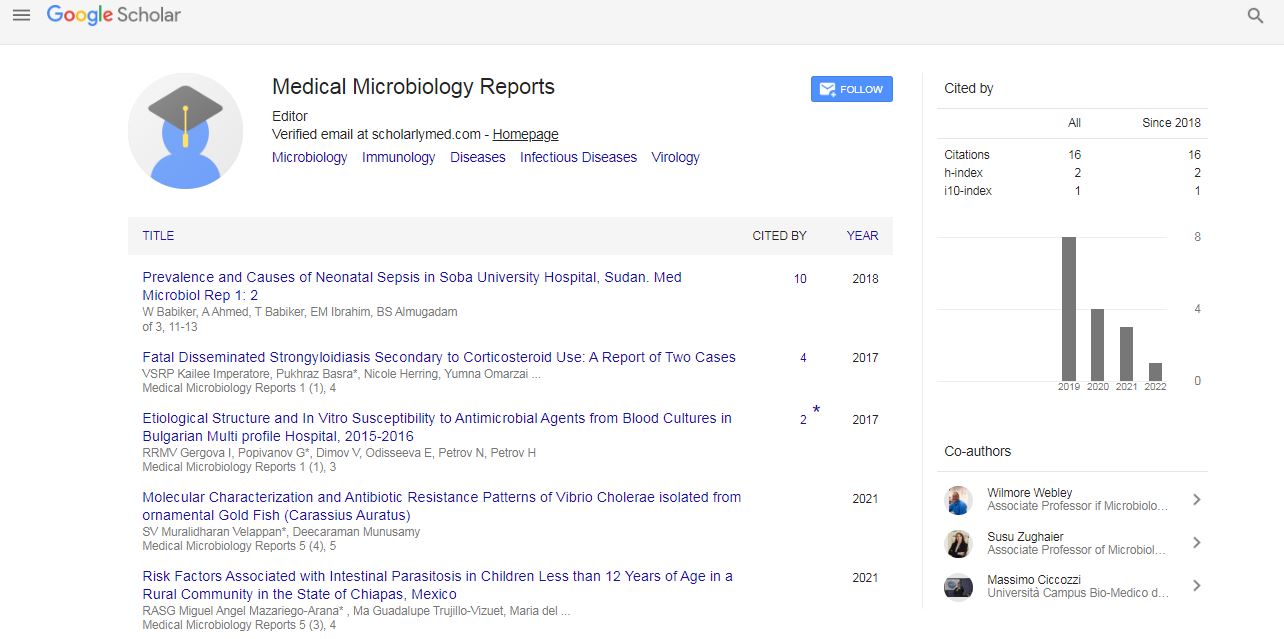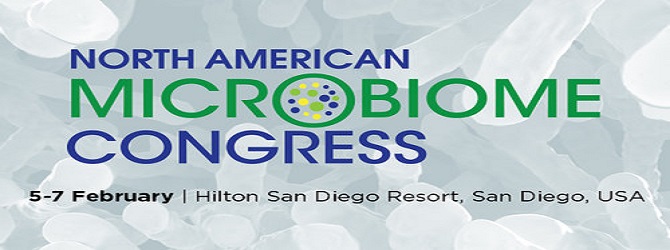Bud poplar extract-chitosan films as multifunctional wound healing agent
Donatella Pietrella, Valeria Ambrogi and Rita Pagiotti
University of Perugia, Italy
: Med Microbiol Rep
Abstract
Wounds represent a major global health challenge. In 2040, 10.4% of the adult population worldwide is estimated to have diabetes. Venous insufï¬Âciency and peripheral neuropathy lead to loss of sensitivity in the feet which degenerated in chronically-infected lesions, the so-called diabetic foot ulcers. Moreover, pressure ulcers are a serious problem for all bed-bound and chair-bound patients. Wound infections may also occur in burn victims, patients with traumatic wounds, and patients with surgical wounds. Both acute and chronic wounds are sensitive to bacterial infection. The wound environment facilitates the development of microbial biofilms. Biofilms are found on the surface of the skin and many evidences suggest their involvement in the delay of wound healing and in the chronic inflammation process. The prevention of biofilm formation is the goal of wound treatment because the standard protocols based on topical and systemic administration are often unable to remove biofilms. With the increase in the prevalence of wounds in almost every country, there is a growing interest in the search of natural healing agents that have low cost and toxicity for the treatment of wounds and ulcers. Propolis is widely used in traditional medicine for its antibacterial, antioxidative, anti-inflammatory properties. Chitosan is biocompatible and biodegradable polymer with antimicrobial and hydrating properties. Aim of this work was the preparation of chitosan-propolis film and its biological characterization (Figure 1). Chitosan and propolis films showed an interesting anti-biofilm activity. Moreover, films were found to be non-toxic for human fibroblasts and keratinocytes. Finally, the films showed anti-inflammatory activity and a good regenerative and proliferating activity in the restoration of the cellular cells. In conclusion, our results suggest that chitosan-propolis films could be considered antimicrobial biomaterials for advanced dressings focused on the acceleration of wound repair.
Biography
Donatella Pietrella is a microbiologist in the field of medical microbiology. Her research activity ranges from the evaluation of antimicrobial activity and antibiofilm of natural and synthetic substances to the interaction of pathogens with the cells of the immune system. In particular, she studies the activation of macrophages and their role in the resolution of infections. It also deals with the antimicrobial and anti-inflammatory activity of probiotic metabolites.
E-mail: Donatella.pietrella@unipg.it
 Spanish
Spanish  Chinese
Chinese  Russian
Russian  German
German  French
French  Japanese
Japanese  Portuguese
Portuguese  Hindi
Hindi 
